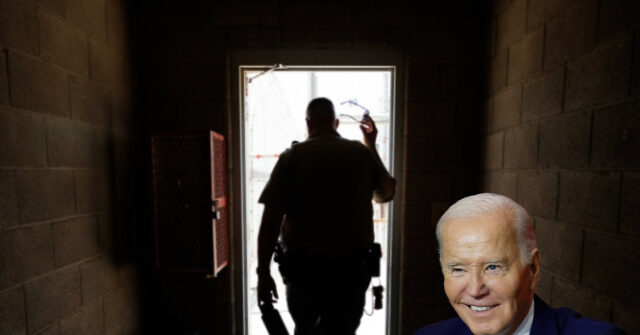President Joe Biden is reportedly contemplating commuting the sentences of inmates currently on federal death row, as per recent reports by the Wall Street Journal. Sources familiar with the situation indicate that Biden may consider commuting the sentences of “most, if not all” of the 40 men facing execution in federal prisons. This potential decision has raised discussions regarding high-profile cases such as that of Charleston church mass shooter Dylan Roof and Boston Marathon bomber Dzhokhar Tsarnaev, both of whom remain on federal death row.
If Biden proceeds with these commutations, the inmates, all convicted of serious crimes including murder, would likely face life imprisonment without the possibility of parole instead of execution. The White House has not confirmed any final decision; however, some insiders suggest that Biden could announce his decision as early as Christmas. This raises significant questions about the nature of justice and mercy within the American legal system, particularly whether the commutation should apply universally to all condemned men or be reserved for those whose crimes may not be deemed the most heinous.
The discussion around commutations and the death penalty has also garnered the attention of influential figures outside the government, such as Pope Francis. At the beginning of December, the Pope emphasized the need for prayer for those on death row, calling for their sentences to be commuted. He encouraged followers to think compassionately about these individuals, framing the conversation not just in terms of justice, but also of grace and redemption. The Pope’s involvement underlines a broader moral and ethical debate surrounding the death penalty, particularly in the context of modern Catholic teachings.
In 2018, Pope Francis made a significant amendment to the Catechism of the Catholic Church, declaring capital punishment “inadmissible” in all cases. This declaration reflects a shift in theological perspectives that move away from retributive justice and towards a more restorative approach, suggesting that all human life has intrinsic value, regardless of a person’s actions. Such a stance reinforces the urgency of discussions surrounding the fate of those on death row, as both religious and governmental authorities grapple with complex moral considerations.
Biden’s potential commutation reflects a growing trend among some political leaders to reconsider the use of capital punishment in the United States. The shifting public sentiment around the death penalty, driven by concerns about wrongful convictions and systemic inequities, has fueled calls for reform. Many advocates argue that a life sentence without parole is a more humane and ethical response to violent crime, emphasizing rehabilitation over retribution.
As discussions continue to unfold, the future of those on federal death row remains uncertain. Biden’s pending decision represents not only a legal and political choice but also an opportunity for societal reflection on the values of justice, mercy, and the sanctity of life. With religious leaders like Pope Francis advocating for change, the potential for reform in capital punishment policy could significantly alter the landscape of American justice, impacting the lives of those condemned to death and the broader societal understanding of justice itself.

